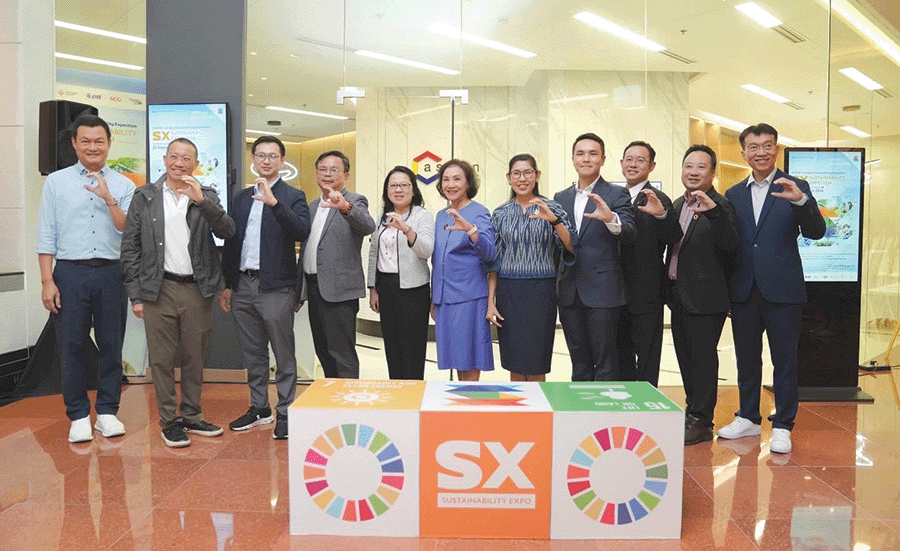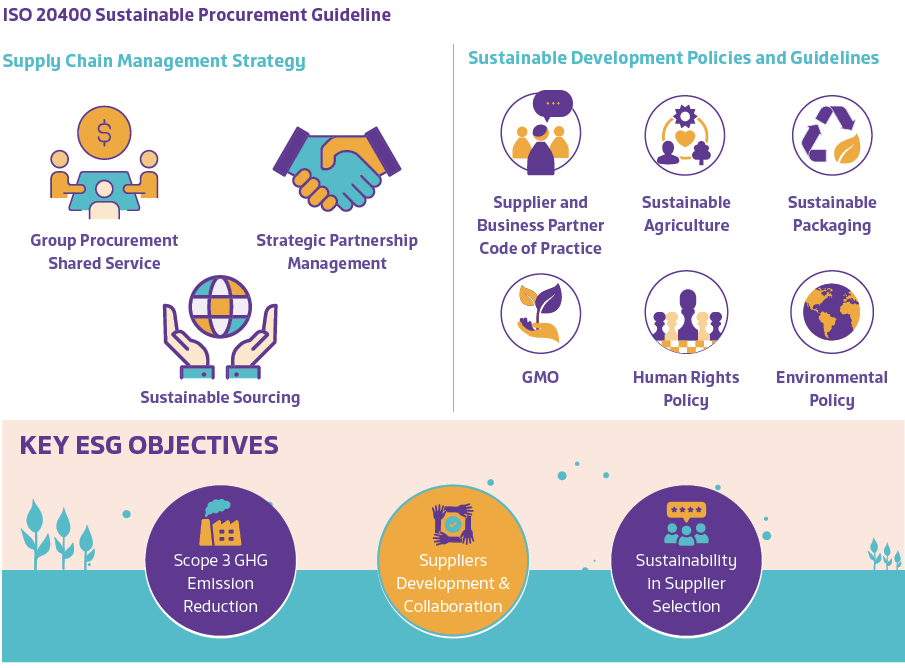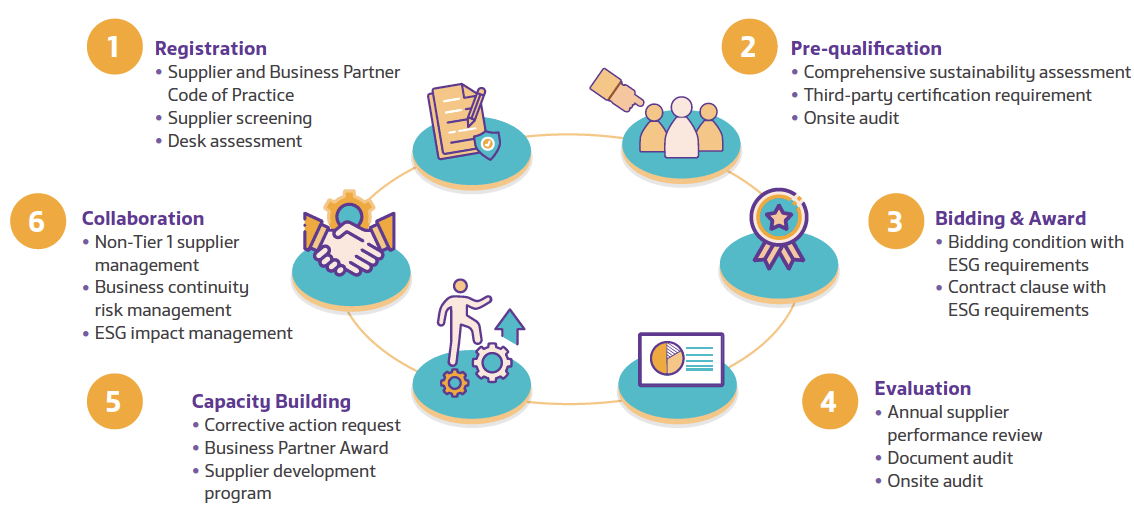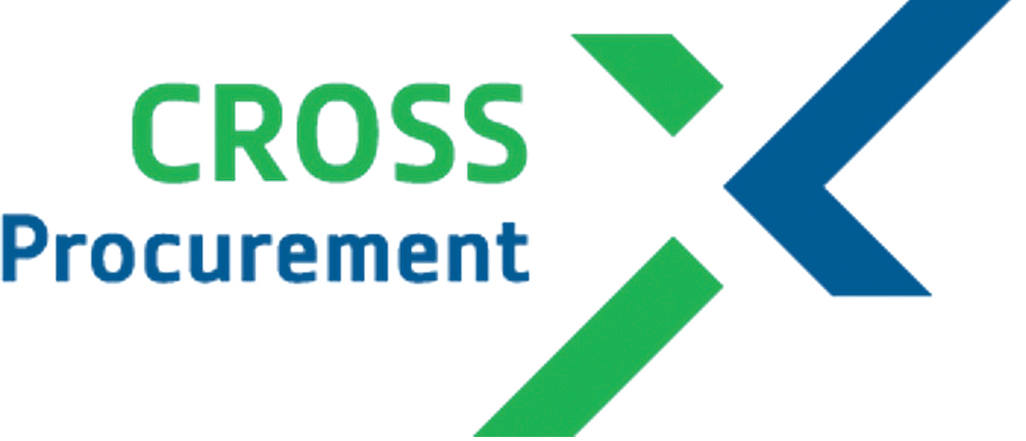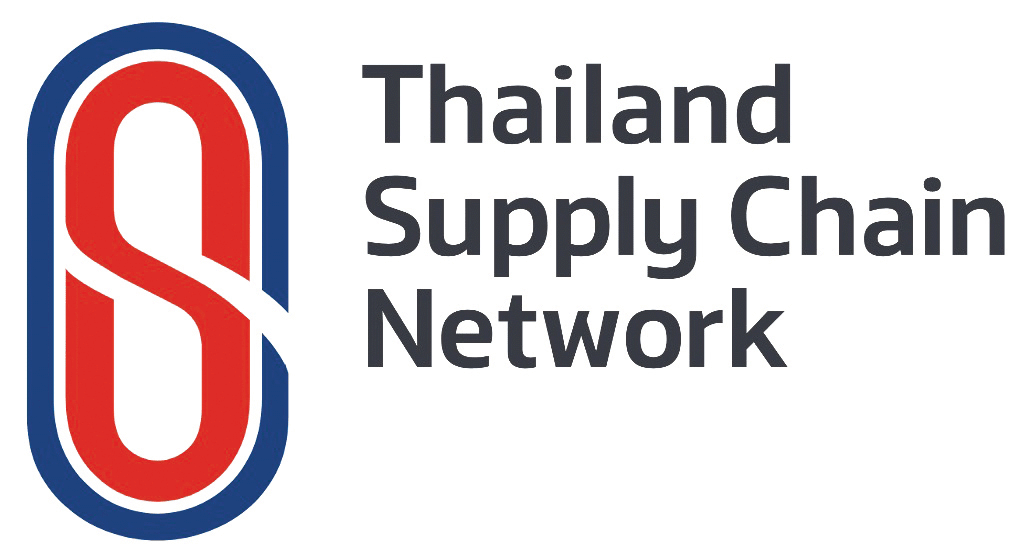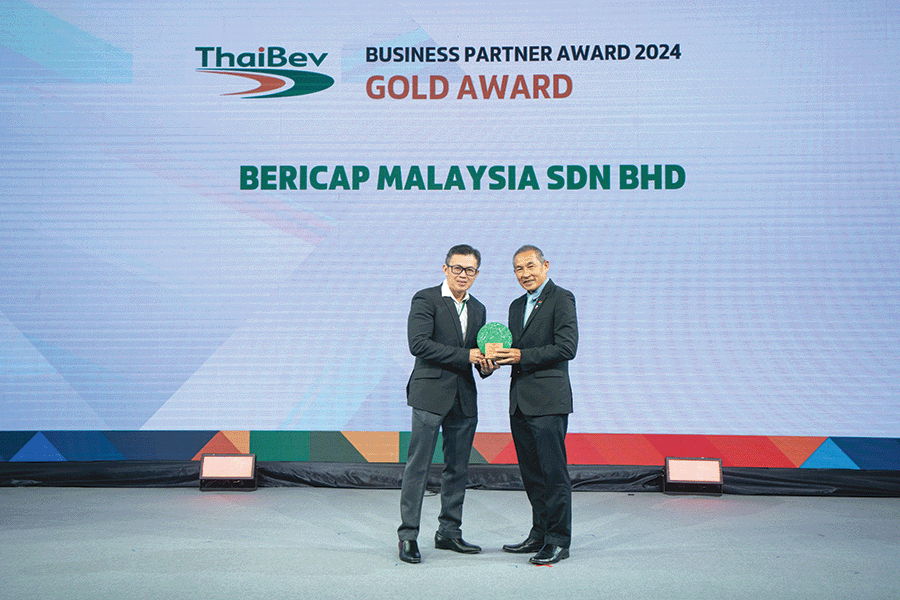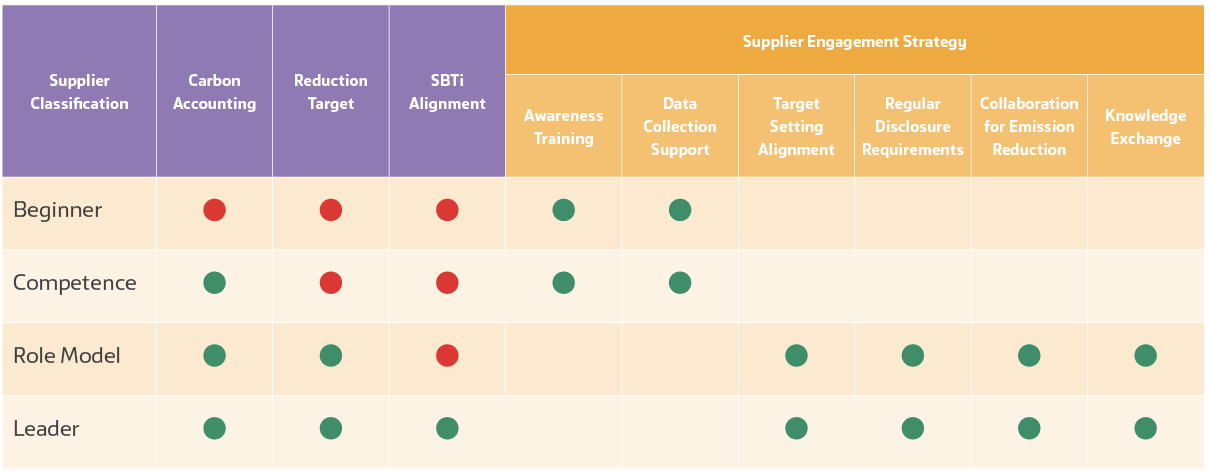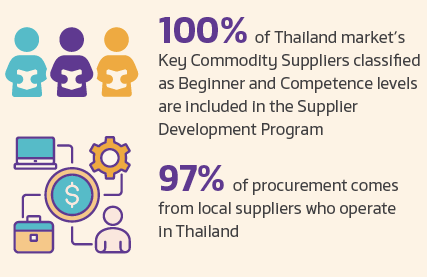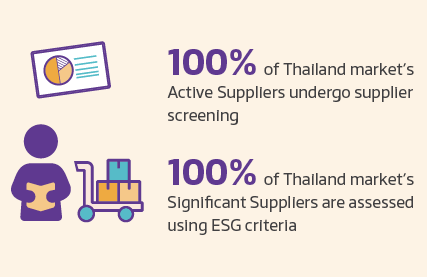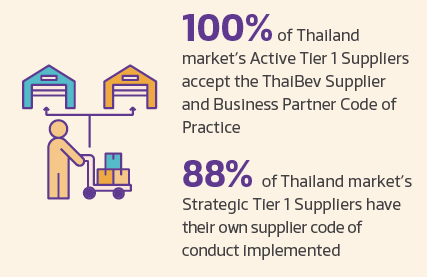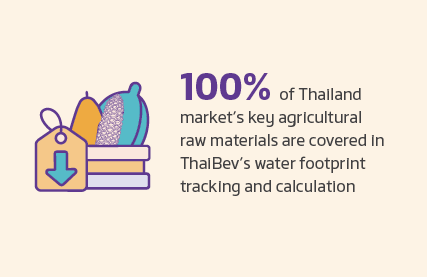The Thailand Supply Chain Network (TSCN) was co-founded by ThaiBev and its strategic business partners to create
a responsible and resilient supply chain ecosystem in Thailand. By connecting suppliers and business partners across various industries and fostering sustainable practices, TSCN enables shared learning and collaborative growth, ultimately supporting Thailand’s journey toward sustainability.
TSCN took a prominent part in Sustainability Expo 2024 (SX2024), Southeast Asia’s largest sustainability-
focused event, which is designed to inspire and educate stakeholders about sustainable practices. TSCN’s collaboration showcased a range of green innovations from its members and featured knowledge-sharing sessions, interactive workshops, and business-matching opportunities. This collaboration reinforced TSCN’s commitment to fostering ESG awareness among Thai entrepreneurs and the wider community.
The first-ever award launched by TSCN, the SX TSCN Sustainability Award 2024 recognized outstanding suppliers for their achievements in ESG practices.
The criteria include measurable impacts in areas such
as emission reduction resource efficiency, social responsibility, and alignment with sustainable
development goals. The award aims to set a benchmark for sustainability in Thailand’s supply chain, motivating other members to elevate their ESG efforts and contribute to a greener, and more sustainable business environment.
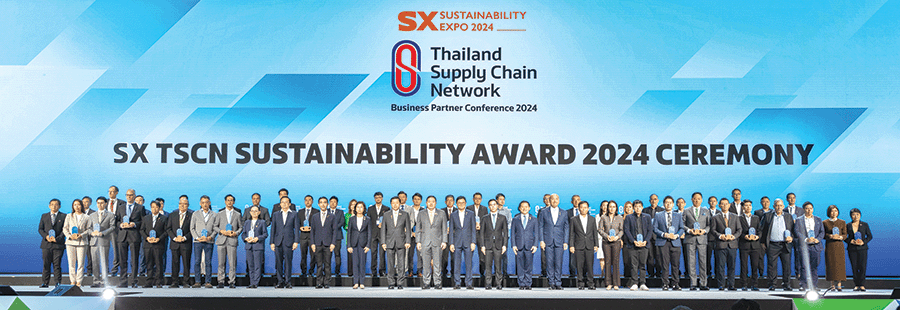
Outlining the fundamental ESG principles expected of
all TSCN members, the TSCN Business Partner Code of Conduct ensures that members operate responsibly and adhere to high standards of sustainability. The code encourages members to adopt sustainable practices within their own supply chains and align their operations with TSCN’s overarching vision of a sustainable and
ethical business ecosystem.
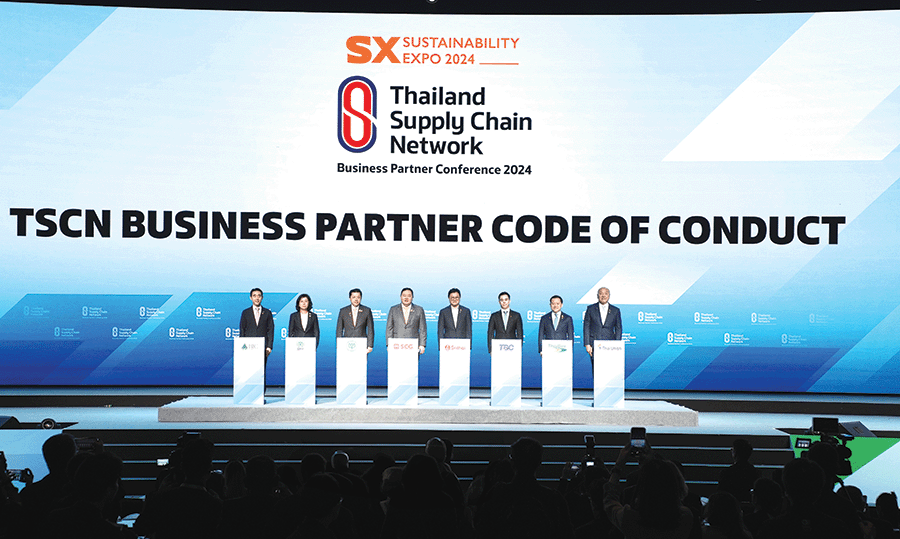
As part of its mission to strengthen Thai entrepreneurs, TSCN introduced the Train-the-Trainer Program in collaboration with its co-founders. This initiative aims to equip member representatives with the knowledge and tools necessary to implement effective sustainability practices within their organizations. By focusing on
GHG emissions tracking, reduction strategies, and sustainability management, the program supports
Thai entrepreneurs in advancing toward Net Zero.
In this way, TSCN empowers businesses to be leaders
in sustainability and contributes to Thailand’s broader climate objectives.
Building on its success in Thailand, TSCN has expanded its collaborative efforts. In Vietnam, TSCN co-founders have hosted sessions on sustainable supply chain management, green innovation, and ESG integration. Activities have included workshops on circular economy concepts, resource efficiency, and waste reduction,
all tailored to local suppliers to ensure alignment with global sustainability standards. The program has also enabled knowledge sharing between Thai and
Vietnamese suppliers, fostering cross-border
partnerships that strengthen the region’s overall sustainability efforts. This expansion shows TSCN’s commitment to scaling its impact across ASEAN, ensuring that suppliers in other markets benefit from equal opportunities for growth and recognition.
By promoting sustainability beyond Thailand, TSCN reinforces its role as a key driver of ESG advancement and regional supply chain resilience.
